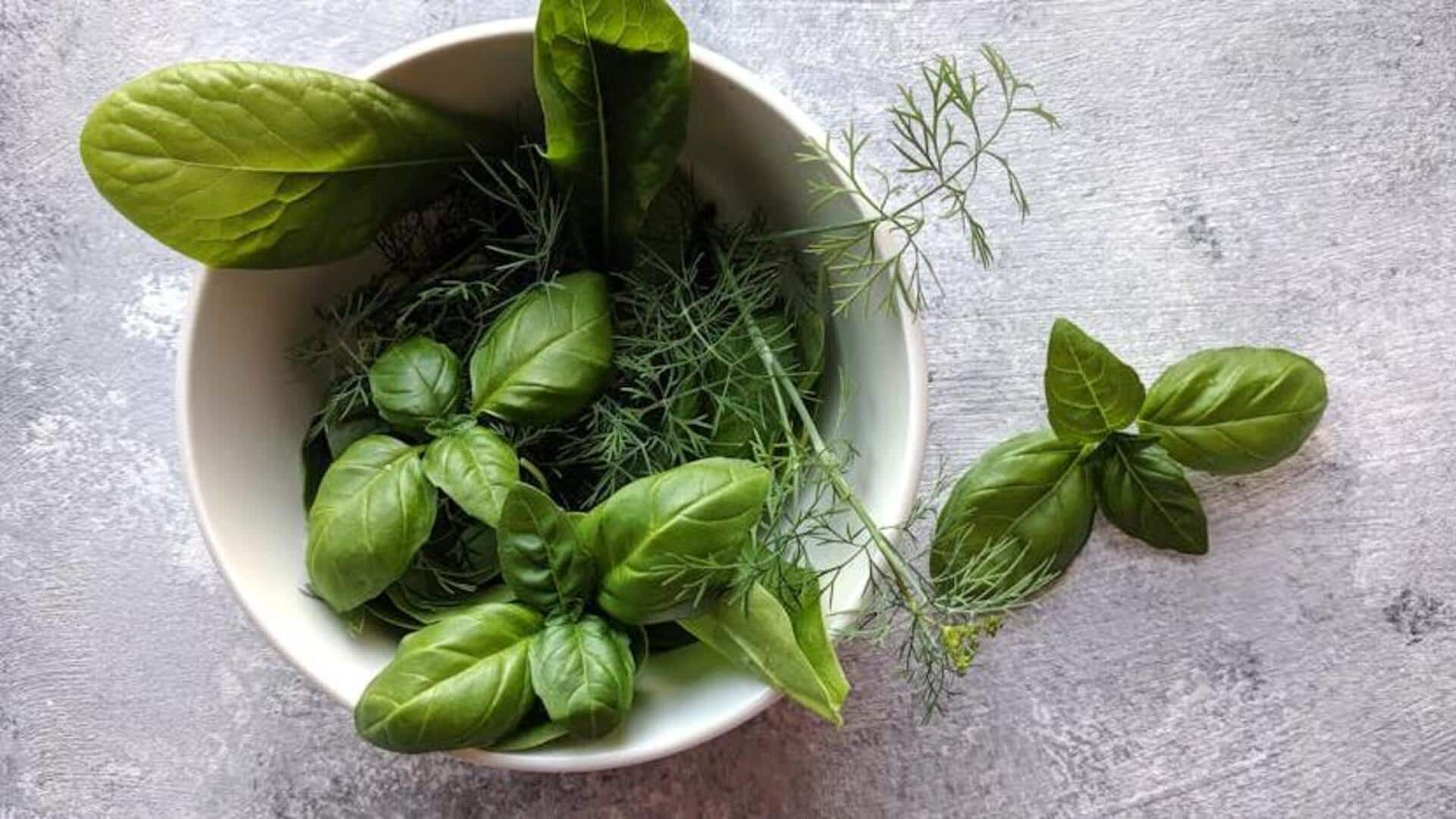
Unveiling dill's antimicrobial marvels
What's the story
Turns out, dill, the humble herb that's been hiding in plain sight in kitchens worldwide, is a secret superhero of the culinary world.
Recent research has revealed dill's impressive antimicrobial might, suggesting it could be a potent natural weapon against a range of harmful pathogens.
This blog post dives into the science behind dill's pathogen-fighting prowess and how we can harness its health-boosting benefits.
Compounds
Dill's active compounds and their effects
The antimicrobial strength of dill stems from its high concentration of bioactive compounds, including carvone and limonene.
These compounds exhibit strong antibacterial and antifungal properties, backed by scientific research.
Studies show dill oil can significantly inhibit harmful strains such as E. coli and Staphylococcus aureus, with inhibition zones reaching up to 30 mm in diameter.
Preservation
Enhancing food preservation naturally
Using dill in food preservation is a natural way to avoid chemical preservatives.
Its antimicrobial benefits extend the shelf life of foods by inhibiting spoilage from microbial growth.
For example, incorporating dill into pickling recipes enhances flavor while serving a preservative function.
This allows pickled vegetables to last longer without the need for artificial additives.
Traditional medicine
Dill in traditional medicine practices
Apart from being a flavorful addition to various dishes, dill is a powerhouse of health benefits and has been a staple in traditional medicines worldwide.
Its antimicrobial properties make it a potent remedy for infections and a secret weapon for oral health.
Gargling with diluted dill oil can soothe sore throats and eliminate harmful oral bacteria causing conditions like gingivitis.
Healthcare products
Potential applications in healthcare products
The healthcare industry is also taking notice of dill's powerful antimicrobial properties.
There is a growing trend toward harnessing these natural benefits in products like hand sanitizers, wound healing ointments, and antiseptic creams.
This not only boosts the effectiveness of these items but also cuts down on the use of synthetic antimicrobials, which can have unwanted side effects or contribute to antibiotic resistance.
Home use
Practical tips for harnessing dill's benefits at home
To take full advantage of dill's antimicrobial properties, consider growing your own or at least keeping some dried dill on hand.
Sprinkling it on dishes not only adds flavor but also contributes to food safety by naturally suppressing microbial growth.
A basic mouthwash created by diluting dill oil serves as a potent tool for oral hygiene.